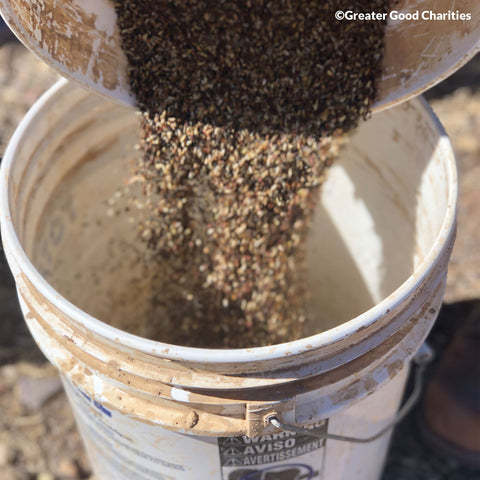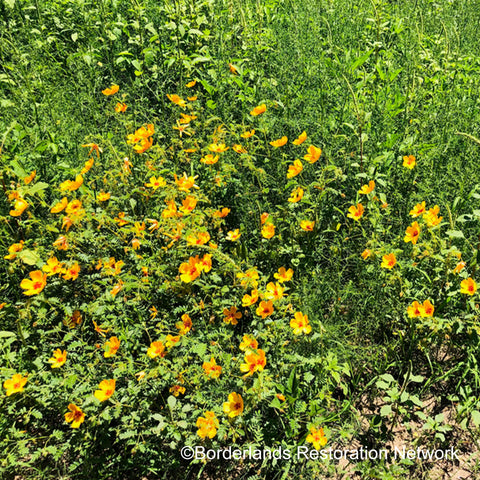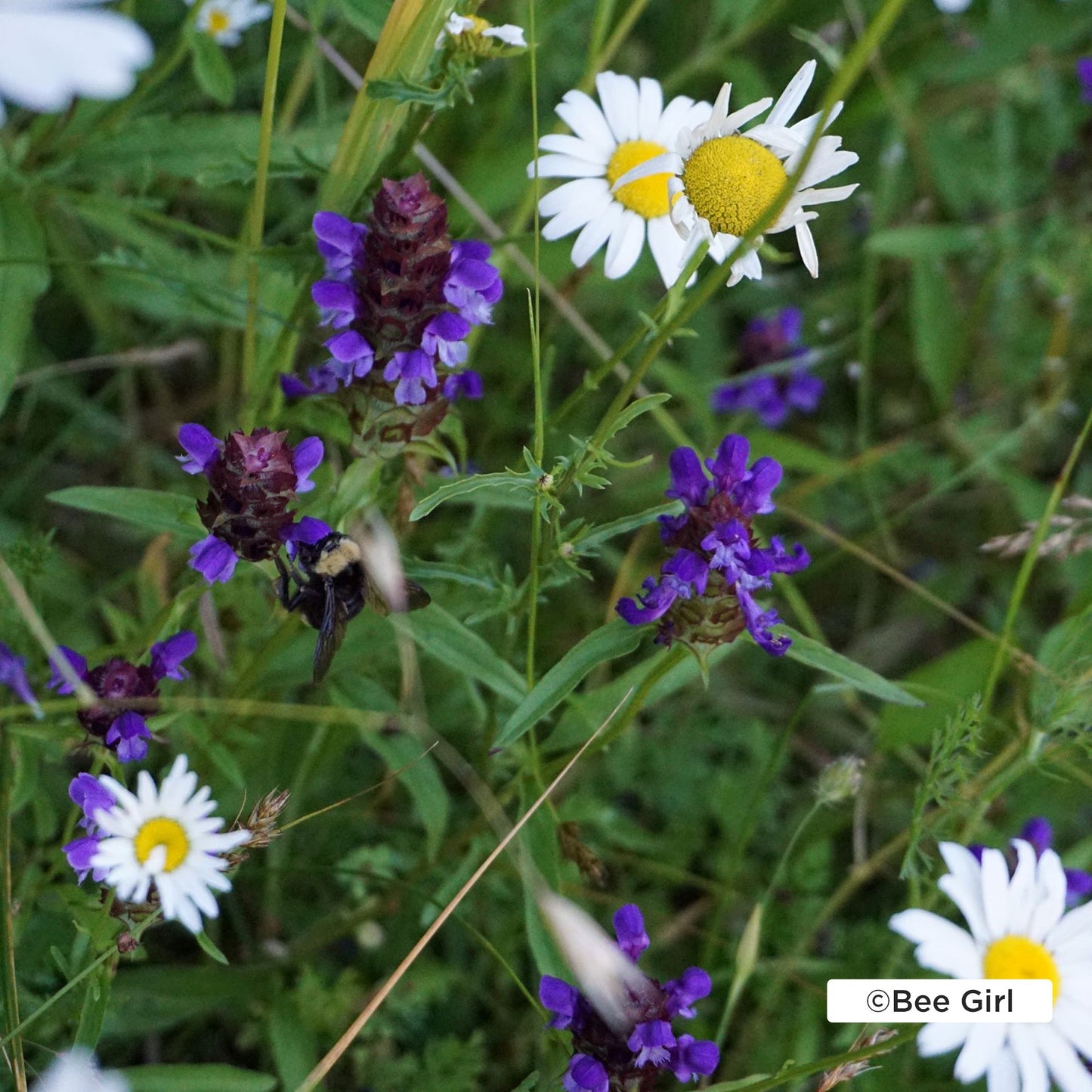ARS PDP Content
Plant Flowers to Save Bees & Other Natural Wildlife
Plant Flowers to Save Bees & Other Natural Wildlife
Couldn't load pickup availability
SKU: SKU: SK-BB-FLOWERS-125FT
🐝 Why Bees Are the "Bee's Knees": 🐝
Bees are an essential and vital part of our ecosystem. Our agricultural system relies heavily upon bees to do their part -- in fact approximately 75% of fruits, nuts and vegetables grown in the United States are pollinated by bees! These tiny but mighty insects don't only pollinate out food, but are estimated to be responsible for pollinating 80% of the world's flowers.
 Our friend Steve getting ready to plant flowers.
Our friend Steve getting ready to plant flowers.
The Situation:
Bees are losing their main source of nutrition: nectar and pollen from flowers.
 Seeds from our most recent planting.
Seeds from our most recent planting.
One area in need is the Florida panhandle where Hurricane Michael hit hard in 2018. The panhandle is still feeling the after effects of this horrible disaster, where many of the pollen producing flowers have died as a result. The area was home to around 1 billion bees and millions of flowers. Beekeepers in the area are, and have been, doing as much as they can to save the colonies by planting trees and flowers at their own expense to bring back bees and beauty to the area. Despite the valiant effort of beekeepers, the bee population has yet to recover. The flowers that are planted would also support other wildlife such as butterflies, and birds that rely on nectar from flowers for food!
 After a recent planting to help bees!
After a recent planting to help bees!
How To Help:
"BEE" the difference for these fluttering friends of ours! Bees depend on flowers for nectar and pollen to take back to their colonies. Let's help them by planting flowers in areas that have been hit by natural disasters or in communities where the bee population is struggling.
 Over 100K has been given to help the bee population.
Over 100K has been given to help the bee population.
![[alt text here]](https://cdn.shopify.com/s/files/1/1421/8248/files/0006_AdobeStock_132839307_480x480.jpg?v=1588969547)
Plantings You've Helped Support:
- The Willamette Valley in Oregon- 16 acres were planted and the Bee Girl has already seen an increase in the bee population in the area!
- We partnered with The Bee Girl Organization (TBGO) to plant wildflowers at a Vineyard in Oregon. Vineyards are self-pollinating and don't require insect pollination. This creates an unfortunate trend of vineyards being synonymous with "pollination deserts." TBGO requested that they decrease spraying, eliminate mowing, and start planting wildflowers. The vineyard followed their instructions, resulting in an inspiring success. The population of bees increased from 2020 to 2021 and wildflowers that have been dormant for 15 years started to emerge!
![[alt text here]](https://cdn.shopify.com/s/files/1/1185/0798/files/BeeGirl_VER2_2000x2000_7194cc4d-aa2e-4129-bcb7-14d60580ff59_480x480.jpg?v=1634842079)
![[alt text here]](https://cdn.shopify.com/s/files/1/1185/0798/files/BeeGirl_VER3_2000x2000_37709fbb-3a5a-4c42-9e12-7fb3a151eb0e_480x480.jpg?v=1634842097)
- Southern Arizona in the Borderlands region - this planting provided a pollinator refuge for our pollinating friends!

Other important information:
- You will not receive a shipment from this purchase. We will facilitate the donation directly with qualifying organizations your behalf.
- You will be charged all required taxes for your location. Save your receipt and consult your tax professional to determine if you're able to claim this purchase as a tax-deductible donation expense.
-
GreaterGood has ultimate authority and discretion with regard to the distribution of Benefit Buy contributions based upon what the receiving organization needs the most. We will always contribute products of equal or greater value. Contributions may be distributed as cash or may be used to help other charity partners depending on the greatest need.
- GreaterGood is proud to help provide this opportunity to plant flowers in areas that are in need. We are 20 Years Strong, and we couldn't have done it without your support--thank you!
Shipping
Shipping
You will not receive a shipment from this product. We will deliver your product purchase directly to the shelter recipient on your behalf.
Returns
Returns
If you are not 100% satisfied with this product, you may return it for exchange or refund within 90 days of purchase, subject to some restrictions. Please review our full Returns & Exchanges information.























